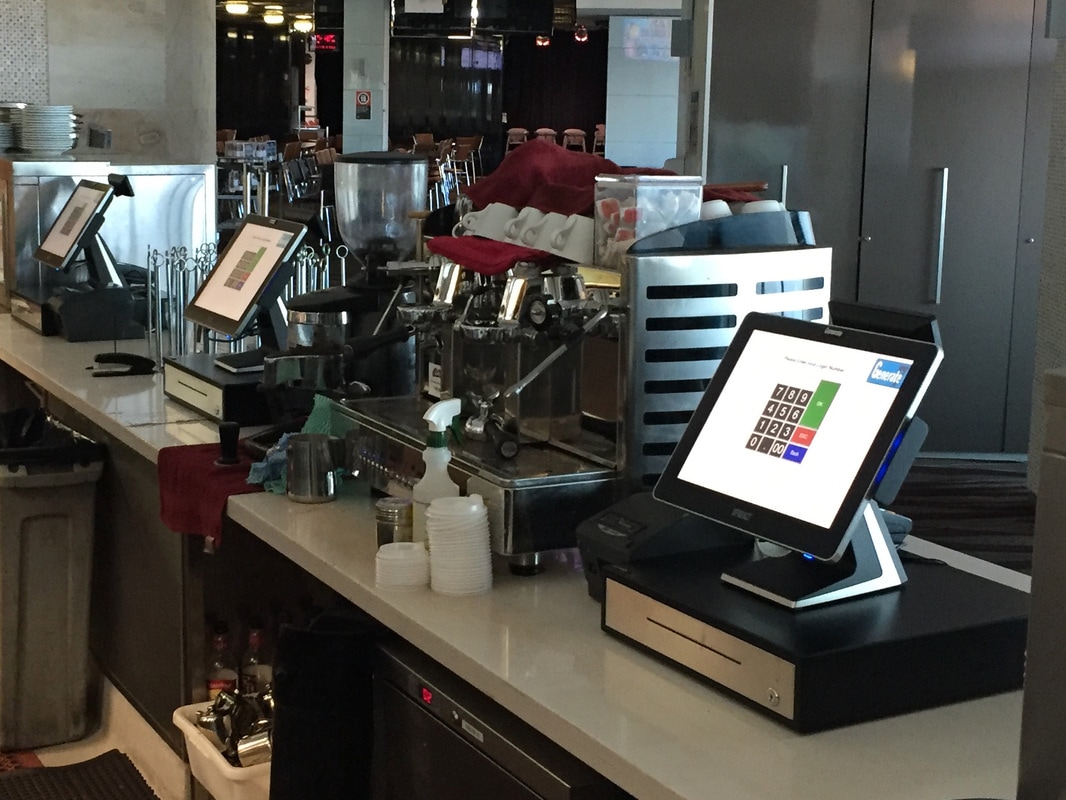In fast-paced business landscape, having an effective and streamlined sales process is essential for success. This marks the time that an integrated POS system becomes essential, transforming the way companies oversee transactions, inventory, and customer relationships. We have moved beyond of relying solely on traditional cash registers that feature restricted functionality. Contemporary POS systems have evolved significantly, integrating advanced features that enable businesses of all sizes optimize their operations and elevate customer experiences.
Comprehending what a POS system is and how it can influence your business is crucial for keeping competitive. From cloud-based solutions to sector-specific applications, the choices available now cater to the unique needs of various fields, including hospitality and retail. As you investigate the benefits of incorporating a sophisticated POS system into your sales process, you'll discover how features like real-time data analytics, touchless payments, and employee productivity enhancements can simplify operations and encourage growth. No matter if you are a small business owner or a supervisor in a more extensive enterprise, adopting the suitable POS system can make all the difference in achieving operational performance and improved customer satisfaction.
Grasping POS Systems of Point of Sale along with These Development
Point of Sale solutions, usually called POS systems, serve as vital instruments for companies in administering sales activities and enhancing workflow. At their core, these systems simplify the payment process, allowing businesses to oversee transactions, manage stock, and create reports. This feature eliminates the challenges of handwritten record-keeping, delivering a more efficient and organized way for conducting transactions. The contemporary POS system integrates physical components and digital tools to enable payments, inventory management, and client engagement, rendering it an indispensable resource across various fields.
The evolution of Point of Sale systems has been extraordinary, transitioning from traditional cash registers to sophisticated, internet-connected systems. At first, cash registers were simple instruments that only logged sales data. As innovation matured, digital registers emerged, offering features like basic reporting and stock oversight. Today, contemporary Point of Sale systems utilize cloud computing, allowing for immediate information retrieval and remote control, which vastly enhances performance. This evolution has empowered companies to adapt to shifting client expectations and market dynamics, changing the way sales are managed.
With the rise of e-commerce and new payment techniques, modern businesses need flexible and strong Point of Sale solutions. https://persuasive-aloe-nrlkq1.mystrikingly.com/blog/the-environmental-effect-of-payment-systems-embracing-sustainability to connect with various services, such as online storefronts and bookkeeping software, is now necessary. Moreover, features like mobile payments, tap payments, and advanced analytics have redefined what a Point of Sale system can achieve. As organizations turn to the future, comprehending the progress and functions of POS systems is vital for choosing the right platform that matches their operational and customer service aims.
Selecting the Ideal POS Solution for Your Business
Selecting the best POS solution for your business is vital for optimizing operations and improving customer service. Start by evaluating your specific needs based on the industry. For instance, a retail store may demand robust inventory management features, while a restaurant might prioritize table handling and efficiency of payment processing. Comprehending your operational requirements will aid filter options that truly fit the business model.

Subsequently, take into account the scalability and flexibility of the POS system. As your business develops, the technology should be able to adapt to rising demands. Look for systems that offer adaptable features and integrations with different software, such as accounting and CRM solutions. This versatility ensures that you won’t outgrow the system, which could lead to budget-breaking replacements in the future.
Ultimately, take into account the usability and training needs of your staff. A user-friendly interface can significantly minimize the learning curve, leading to improved productivity and fewer mistakes. It is wise to involve the team in the decision-making process, as their feedback can provide insight into what features will be most beneficial in their daily tasks. Choosing a POS solution that fits both your business goals and your employees' needs will lead to a smoother transition and enhanced operational efficiency.
Maintaining Protection and Efficiency in POS Operations
Upholding security in POS processes is essential for protecting sensitive customer data and protecting business operations. Utilizing strong security measures, such as using EMV chip technology, can greatly reduce the threat of fraudulent transactions and data breaches. Additionally, maintaining compliance with PCI standards is necessary for any business utilizing a POS system. Regular security updates and staff training on optimal procedures can additionally enhance the security posture of your business.
Productivity in POS processes can be attained by combining your POS system with other key software such as accounting and customer relationship management (CRM) platforms. This combination simplifies data flow between systems, minimizing manual data entry and lowering errors. A state-of-the-art POS system equipped with inventory management features can also streamline stock tracking, allowing businesses to make prudent purchasing decisions and maintain optimal inventory levels without overstocking.
Moreover, utilizing data analytics from your POS system can lead to better business decisions. By examining sales trends and customer behavior, businesses can customize their offerings to satisfy customer demands effectively. Regular maintenance of the POS system guarantees that it functions at peak performance, reducing downtime and ensuring the sales process proceeding without interruptions. Implementing a routine for staff training on effective POS usage can additionally enhance productivity, allowing for a smoother customer experience.
